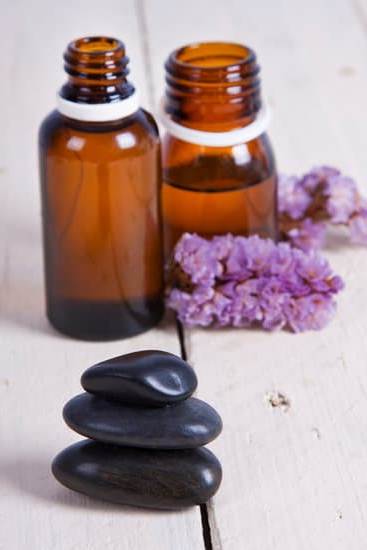Peppermint aromatherapy has gained popularity for its numerous health benefits and refreshing scent. Aromatherapy, in general, is the practice of using essential oils extracted from plants to promote physical and psychological well-being. Peppermint essential oil, derived from the peppermint plant, is known for its cooling properties and invigorating aroma. But what are the benefits of peppermint aromatherapy, and how can it improve your overall wellness?
Peppermint aromatherapy has a long history dating back to ancient civilizations where it was utilized for its medicinal properties. Over time, the use of peppermint in aromatherapy has evolved, with modern research shedding light on its effectiveness in promoting health. Scientific evidence supports the various benefits of peppermint aromatherapy, demonstrating its potential to improve both physical and mental health.
One of the key advantages of peppermint aromatherapy is its ability to provide relief from a range of physical ailments. From headaches and respiratory issues to digestive problems and muscle pain, peppermint essential oil has been shown to offer natural solutions to common health complaints. Furthermore, the mental health benefits of peppermint aromatherapy should not be overlooked, as it can help reduce stress and anxiety, enhance mood, and boost focus and concentration.
History of Peppermint Aromatherapy
Peppermint aromatherapy has a rich history that dates back centuries, with the use of peppermint for therapeutic purposes being well-documented across various cultures. The ancient Egyptians, Greeks, and Romans all recognized the healing properties of peppermint and utilized it in medicinal preparations. In traditional medicine practices, peppermint was valued for its ability to soothe digestive issues, reduce inflammation, and alleviate symptoms of headaches and respiratory ailments. This historical usage laid the foundation for the development of modern peppermint aromatherapy.
Over time, the practice of using peppermint essential oil for aromatherapy has evolved significantly. With advances in technology and scientific research, we now have a better understanding of how peppermint interacts with our bodies on a molecular level. The cultivation and extraction methods have also improved, leading to higher quality essential oils that retain the full range of therapeutic benefits found in peppermint.
One key aspect that has contributed to the popularity of peppermint aromatherapy is its versatility. Peppermint essential oil can be used on its own or blended with other complementary oils to enhance its effects.
Whether diffused in the air to promote mental clarity and focus or applied topically for pain relief and skin benefits, peppermint aromatherapy offers a holistic approach to overall well-being. As we delve deeper into the scientific evidence supporting these benefits, it becomes clear why peppermint is hailed as a powerhouse in the world of essential oils.
Scientific Evidence
Research Studies Supporting Peppermint Aromatherapy
There has been a growing body of research that supports the benefits of peppermint aromatherapy on both physical and mental health. A study published in the National Center for Biotechnology Information (NCBI) showed that inhaling peppermint essential oil was effective in reducing nausea and vomiting in chemotherapy patients. Another study conducted by the University of Maryland Medical Center found that peppermint oil helped alleviate tension headaches when applied topically on the temples.
Moreover, a systematic review published in Evidence-Based Complementary and Alternative Medicine highlighted the potential of peppermint essential oil to improve cognitive function and memory. This suggests that the use of peppermint aromatherapy could have positive effects on focus, concentration, and overall mental clarity.
Physiological Mechanisms
Peppermint essential oil contains active compounds such as menthol, menthone, and limonene, which contribute to its therapeutic properties. When inhaled or applied topically, these compounds interact with receptors in the nasal passages or skin, triggering physiological responses in the body. For example, menthol acts as a natural analgesic, providing relief from pain and inflammation. Additionally, peppermint oil has antimicrobial properties that can help fight off infections and support immune function.
Furthermore, studies have shown that inhaling peppermint essential oil can stimulate the olfactory system and activate brain regions associated with mood regulation. This mechanism explains why peppermint aromatherapy is often used to reduce stress, anxiety, and improve mood. By understanding how peppermint essential oil works on a physiological level, we can better appreciate its wide-ranging benefits for holistic well-being.
Physical Health Benefits
Peppermint aromatherapy offers a wide range of physical health benefits that can help improve overall well-being. Here are some of the key advantages of incorporating peppermint essential oil into your self-care routine:
- Relief from headaches and migraines: Peppermint oil has analgesic and anti-inflammatory properties that can help alleviate tension headaches and migraines. Inhaling the refreshing scent of peppermint can provide quick relief and promote relaxation.
- Alleviation of respiratory issues: The menthol content in peppermint oil acts as a decongestant, helping to clear the sinuses and promote easier breathing. Diffusing peppermint oil or inhaling it directly can provide relief from symptoms of colds, allergies, and sinus congestion.
- Digestive aid: Peppermint aromatherapy is known for its ability to support digestive health. The calming effect of peppermint oil on the stomach can help soothe indigestion, bloating, and nausea. Adding a few drops of peppermint oil to a carrier oil and massaging it onto the abdomen can help alleviate discomfort.
Peppermint aromatherapy also offers muscle pain relief benefits. Peppermint essential oil has cooling properties that can help reduce inflammation and soothe sore muscles. It is commonly used in massage oils or ointments for post-workout recovery or to relieve tension in specific areas of the body.
Incorporating peppermint aromatherapy into your daily routine can provide natural relief for various physical ailments while promoting a sense of well-being. Whether you choose to diffuse peppermint oil, apply it topically, or inhale it directly, the benefits of this versatile essential oil can have a positive impact on your overall health.
Mental Health Benefits
Peppermint aromatherapy offers a range of mental health benefits that can positively impact overall well-being. The invigorating scent of peppermint essential oil has been shown to have mood-enhancing properties and aid in stress reduction. Here are some of the key advantages of incorporating peppermint aromatherapy into your daily routine:
- Stress and anxiety reduction: The refreshing aroma of peppermint can help calm the mind and promote relaxation, making it a valuable tool for managing stress and anxiety.
- Mood enhancement: Peppermint essential oil is known for its uplifting properties, which can help improve mood and create a more positive outlook on life.
- Improved focus and concentration: The stimulating effects of peppermint aromatherapy can enhance mental clarity, sharpen focus, and boost concentration levels.
With its plethora of mental health benefits, peppermint aromatherapy is a versatile option for those looking to support their emotional well-being naturally. Whether you need a quick pick-me-up during a busy workday or a calming influence before bedtime, incorporating peppermint essential oil into your self-care routine can have a profound impact on your mental health.
Throughout history, people have turned to aromatic herbs like peppermint for their therapeutic effects on the mind and body. Today, scientific evidence continues to support the use of aromatherapy with essential oils like peppermint for various mental health concerns. By harnessing the power of nature’s remedies, individuals can experience the holistic benefits that peppermint aromatherapy has to offer.
In summary, the mental health benefits of peppermint aromatherapy are vast and varied, making it an excellent addition to any wellness regimen. From reducing stress and anxiety to enhancing mood and boosting cognitive function, this natural remedy has much to offer those seeking emotional balance and well-being. Embrace the power of peppermint essential oil in your daily life to reap the mental health benefits it provides.
Skin and Hair Benefits
Peppermint aromatherapy not only offers a myriad of benefits for mental and physical health but also provides remarkable advantages for skin and hair care. The invigorating scent of peppermint essential oil is known to have anti-inflammatory properties, making it a valuable ingredient in skincare products.
Its cooling effect can help soothe irritation, redness, and itchiness on the skin, making it ideal for those with sensitive or troubled skin. The antimicrobial effects of peppermint oil can also help combat acne-causing bacteria, promoting clearer and healthier skin.
In addition to its skincare benefits, peppermint aromatherapy can also contribute to scalp health and promote hair growth. When applied topically or through massage, peppermint essential oil can stimulate blood flow to the scalp, which may enhance hair follicle health and encourage new growth.
This refreshing oil can also help in balancing the scalp’s natural oils, preventing issues such as dandruff and dryness. Incorporating peppermint aromatherapy into your hair care routine may leave your locks looking shinier and feeling more nourished.
To harness the full potential of peppermint aromatherapy for skin and hair benefits, one can add a few drops of the essential oil to carrier oils like jojoba or coconut oil for a soothing massage or facial treatment. Additionally, incorporating peppermint oil into DIY skincare recipes like toners or serums can provide a natural solution for various skin concerns.
When it comes to hair care, adding a few drops of peppermint essential oil to your shampoo or conditioner may revitalize your scalp and promote healthy hair growth. With consistent use and proper dilution guidelines followed, the benefits of peppermint aromatherapy on skin and hair health are truly remarkable.
How to Use Peppermint Aromatherapy
Peppermint aromatherapy can be incorporated into daily routines through various methods of application, each offering unique benefits. One of the most popular ways to enjoy the benefits of peppermint essential oil is through the use of diffusers. By adding a few drops of peppermint oil to a diffuser, the aromatic molecules are dispersed into the air, allowing for inhalation and absorption. This method can help alleviate respiratory issues, improve focus, and create a refreshing ambiance in any space.
For topical application, peppermint essential oil can be diluted with a carrier oil and applied to the skin. When massaged onto the temples or forehead, peppermint oil can provide relief from headaches and migraines due to its cooling properties. Additionally, applying diluted peppermint oil on sore muscles can help ease pain and discomfort, making it a popular choice for post-workout recovery.
Inhalation of peppermint aromatherapy is another effective way to experience its benefits. Adding a drop of peppermint oil to a bowl of hot water and inhaling the steam can help clear nasal passages and promote respiratory health. This method is especially useful during cold and flu season or for individuals who suffer from congestion. Overall, incorporating peppermint aromatherapy into your self-care routine can provide physical and mental health benefits while creating a welcoming atmosphere in your home or workspace.
Conclusion
Peppermint aromatherapy has been recognized for its various benefits that contribute to both physical and mental well-being. One of the key advantages of using peppermint essential oil in aromatherapy is its ability to provide relief from headaches and migraines.
Inhaling the scent of peppermint has been shown to have a calming effect on the mind and body, helping to alleviate tension and promote relaxation. Additionally, the antimicrobial properties of peppermint oil make it effective in clearing respiratory issues, such as congestion and sinusitis.
Moreover, peppermint aromatherapy can serve as a digestive aid by easing symptoms of indigestion, bloating, and nausea. The menthol component in peppermint helps relax the muscles in the digestive tract, promoting smoother digestion. Furthermore, when used topically or through inhalation, peppermint essential oil is known for its muscle pain-relieving properties. It can be especially beneficial for alleviating soreness from exercise or chronic pain conditions.
Incorporating peppermint aromatherapy into daily self-care routines can also provide mental health benefits such as stress reduction, mood enhancement, and improved focus. The invigorating aroma of peppermint can help uplift mood and increase alertness, making it ideal for boosting cognitive function during work or study sessions.
By understanding what are the benefits of peppermint aromatherapy and how it can positively impact overall health and well-being, individuals can explore this natural remedy as part of their holistic approach to self-care.
| Benefit | Description |
|---|---|
| Headache Relief | Inhaling peppermint oil can provide relief from headaches and migraines. |
| Respiratory Support | Peppermint oil has antimicrobial properties that help with respiratory issues like congestion. |
| Digestive Aid | Menthol in peppermint eases indigestion symptoms by relaxing digestive muscles. |
Recommendations and Tips
Peppermint aromatherapy has been utilized for centuries for its numerous benefits, both physically and mentally. The invigorating scent of peppermint essential oil is known to stimulate the mind and boost energy levels. One of the key benefits of peppermint aromatherapy is its ability to alleviate headaches and migraines due to its analgesic properties.
Inhaling the aroma of peppermint can help reduce the intensity and duration of these painful episodes. Additionally, peppermint essential oil has anti-inflammatory effects that make it a popular choice for relieving muscle pain and increasing circulation.
Moreover, what are the benefits of peppermint aromatherapy extend beyond physical health to mental well-being. Peppermint oil has a refreshing and uplifting fragrance that can help reduce symptoms of stress and anxiety. The aroma of peppermint is also believed to enhance mood, promote relaxation, and improve focus and concentration. Whether used in a diffuser or through topical application, the scent of peppermint can have a calming effect on the mind, making it an excellent addition to self-care routines.
Incorporating peppermint aromatherapy into daily life can bring about transformative effects on both the body and mind. To maximize the benefits of this aromatic powerhouse, it’s essential to choose high-quality peppermint essential oil from reputable sources.
When using peppermint oil topically or through inhalation, it’s crucial to dilute it properly with a carrier oil to prevent skin irritation or sensitivities. By exploring different methods of application such as diffusers, steam inhalation, or massage blends, individuals can tailor their experience with peppermint aromatherapy to suit their unique needs and preferences.
| Physical Health Benefits | Mental Health Benefits |
|---|---|
| Relief from headaches and migraines | Stress and anxiety reduction |
| Alleviation of respiratory issues | Mood enhancement |
| Digestive aid | Improved focus and concentration |
Resources and References
Peppermint aromatherapy has a long and rich history of being used for its therapeutic benefits. From its origins in ancient civilizations to its modern-day application, peppermint essential oil has proven to be a versatile tool in promoting overall well-being. Scientific evidence supporting the benefits of peppermint aromatherapy continues to grow, shedding light on the physiological mechanisms behind its effectiveness.
Research studies have shown that peppermint aromatherapy can provide a wide range of physical health benefits, including relief from headaches and migraines, alleviation of respiratory issues, digestive aid, and muscle pain relief. Additionally, the mental health benefits of peppermint aromatherapy cannot be overlooked. This fragrant oil has been found to reduce stress and anxiety, enhance mood, and improve focus and concentration.
Incorporating peppermint aromatherapy into daily self-care routines can yield numerous advantages for both body and mind. Whether through the use of diffusers, topical application, or inhalation, individuals can experience the healing properties of this essential oil. By following safety precautions and dilution guidelines, one can safely harness the power of peppermint aromatherapy. So why not explore what are the benefits of peppermint aromatherapy to enhance your well-being today?
Frequently Asked Questions
What Does Peppermint Aromatherapy Help With?
Peppermint aromatherapy is known for its ability to help with various issues such as relieving nausea, easing headaches, reducing stress and anxiety, improving mental clarity, and boosting energy levels.
What Does Smelling Peppermint Essential Oil Do?
Smelling peppermint essential oil can have several effects on the body and mind. It may help in improving focus and concentration, reducing feelings of fatigue or exhaustion, relieving sinus congestion and allergy symptoms, and even enhancing mood by promoting feelings of positivity and alertness.
Is Breathing in Peppermint Oil Good for You?
Breathing in peppermint oil can be good for you when used appropriately and in moderation. It is generally safe for most people when diluted properly before inhalation.
However, some individuals may be sensitive to the strong aroma of peppermint oil and could experience adverse reactions like skin irritation or respiratory problems if overused. It’s always advisable to consult with a healthcare professional before using essential oils for therapeutic purposes.

Are you looking for a natural way to improve your health and wellbeing?
If so, aromatherapy may be the answer for you.





